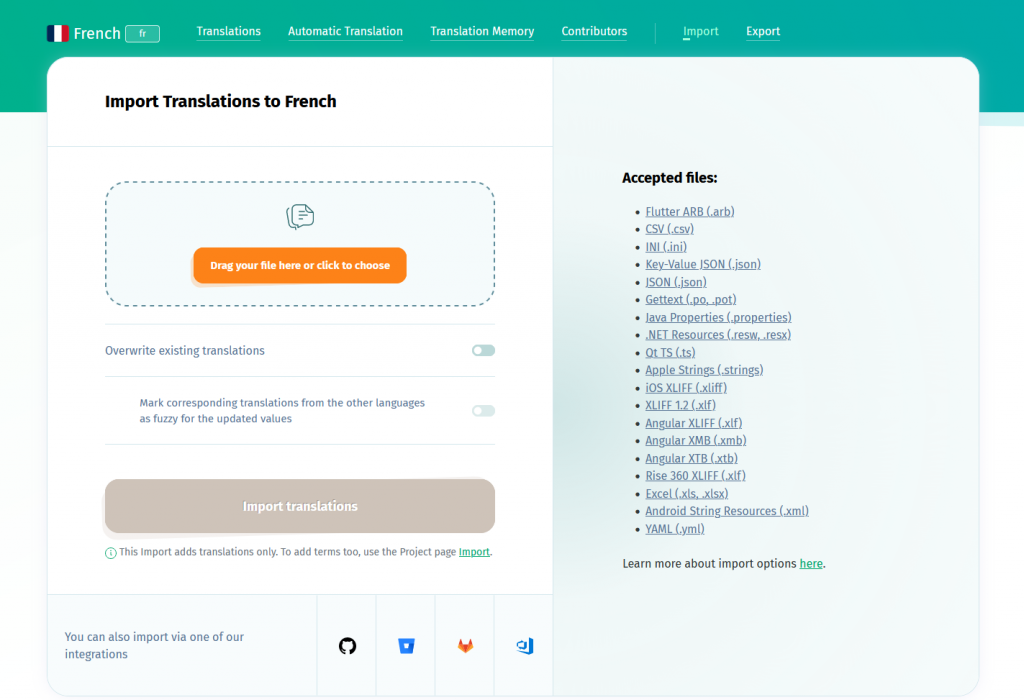POEditor is a translation and localization management system that started back in 2012 as a PO file editor, supporting Gettext .po and .pot files. Ever since, the platform has gained a multitude of functionalities and supported formats.

What are the file formats supported by POEditor
POEditor supports the most popular localization file formats. We will list them below in alphabetical order, by extension:
- Flutter ARB files (.arb), used to localize apps built with Google’s Mobile App SDK, called Flutter.
- CSV files (.csv)
- INI files (.ini), which can be used to localize apps of various kinds, including Joomla apps.
- Key-Value JSON files (.json), utilized mainly in Javascript apps and frameworks. JSON files can be used to localize React apps.
- transport JSON (.json)
- Gettext files (.po, .pot), which can be used to localize WordPress, Drupal and Django sites and plugins, as well as to translate SurveyMonkey surveys.
- Java Properties files (.properties), used to localize Java apps.
- .NET Resources files (.resw, .resx), used to localize .NET apps.
- Qt TS files (.ts), used by the Qt Linguist application. Good for Qt app localization.
- Apple Strings files (.strings), used to localize iOS apps.
- Xcode String Catalogs (.xcstrings), used to localize iOS, macOS, watchOS, and tvOS apps.
- iOS XLIFF (.xliff), generated by Xcode and good for iOS app localization (especially if you’re using plurals).
- XLIFF 1.2 files (.xlf)
- Angular XLIFF files (.xlf), perfect to localize Angular apps.
- Angular XMB files (.xmb) and Angular XTB files (.xtb), also for Angular app localization.
- Rise 360 XLIFF files (.xlf), used to make multilingual Articulate Rise courses.
- Excel files (.xls, .xlsx)
- Android String Resources files (.xml), for Android app localization.
- YAML files (.yml), for Ruby app localization.
How to request support for another file format
If POEditor does not yet support the file format you’re working with in your localization process, you can request its addition:
- by making a Uservoice request
- by sending an email to info@poeditor.com explaining what file format you’re using, how it was generated and adding a sample of the file. If you want, you can also include a few words about your project (what you want to localize).